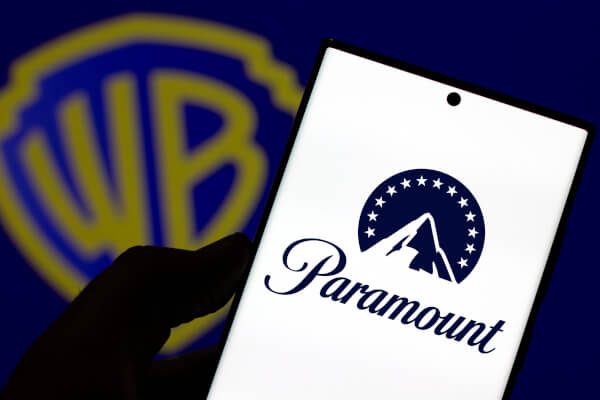Haptic technology, despite its increasing use and growing potential, is still in the shadows. Haptics enables revolutionary interaction with tools and other users through the transfer of the sense of touch, transmitted over distance. Sensors are responsible for the transfer of stimuli, which accurately convey force, vibration and range of motion in real time.
Although the idea of remote communication using the sense of touch is reminiscent of Sci-Fi cinema, it is already possible at the current stage of technological development. Will the Metaverse trend, which is gaining popularity, and robotization prove to be catalysts for the growth of haptic technology and unlock its potential?
Metaverse - the future catalyst for growth?
The introduction of the full immersive world of the Metaverse, in which it will eventually become possible to experience the full range of the senses, brings with it a revolution on almost every level both socially and financially by building a new digital economy. The construction and evolution of virtual worlds brings with it a unique opportunity for widespread adoption of haptic technology due to its powerful, unmissable contribution to 'making virtual worlds real'.
The term Metaverse itself refers to Neal Stephenson's 1992 novel Snowcrash, whose characters escape into virtual worlds to take refuge from a grim, totalitarian reality. Today's Metaverse is made up of ever-expanding and improving virtual worlds in which multi-level interaction between their users takes place.
Emerging platforms such as those created by Meta Platforms, Horizon Worlds still present relatively primitive technology and are only a stepping stone to more advanced structures. Only within them will users be able to experience the full senses. It is worth emphasizing that this type of evolution has been and is characteristic of technological progress. Ultimately, the foundation of change will be the synergy of virtual reality (VR), augmented reality (AR), and ultimately mixed reality (MR) technologies. All elements of the Metaverse are based on the closest possible representation of reality in alternative worlds.
Haptics is one of the inherent foundations of the developed world space of the Metaverse. Immersing users in an alternate virtual reality without the ability to experience tactile stimuli would be at least a 'DEMO' version of what the world's largest corporations like Meta Platforms are working on.
The chart shows that the Metaverse has become the subject of widespread discussion and interest among major companies. It reached 'peak interest' around the time of Mark Zuckerbeg's marketing statement and Facebook's name change to Meta Platforms in the fall of 2021. A value of 100 points on the graph indicates the peak popularity of a topic. A value of 50, on the other hand, means that the topic is half as popular. Source: Bloomberg Intelligence
The forerunner of VR technology, current CEO of UnanimousAI, Louis Rosenberg pointed out the revolution that the Metaverse brings by changing the experience of content from the outside to its direct experience inside. Meta Platforms CEO Mark Zuckerberg commented on building an alternate reality in the following words, "We've moved from desktops to the web and mobile devices; from text to photos and video. But that's not the end of the line. The next platform will be even more immersive - an embodied Internet where you're in the experience, not just looking at it. We call this metaverse, and it will touch every product we build."
Potentially creating a technologically advanced world, although according to industry insiders like the aforementioned L.Rosenberg it will take about 10 years, will spawn demand for hundreds of millions of haptic-enabled tools. Because of the possibilities offered by immersive virtual worlds, we can expect that billions of people on Earth will want to interact with and in them. The growing popularity of VR devices such as Oculus (MetaPlatforms), VR glasses HoloLens (Microsoft) or AR headsets (Apple) is probably just a foretaste of the coming technological revolution.
The number of VR AND AR users in the US is growing every year, bringing the evolution closer to popularizing haptic technology and discovering its full potential. It is worth mentioning that the popularity of 3D technology and the related VR trend was high in the early 90s, which was contributed to by, among others, SEGA. In the wake of the Internet companies boom, the trend was somewhat nipped in the bud and technology companies focused on the new 'dot.com' business space. Since Meta Platforms (then Facebook) acquired Oculus in 2014, we've seen the trend of VR and its enhanced versions begin to resurface. Source: E-marketer, MarketingHub
Haptics - a bridge between the virtual and real world?
Haptic technology is now widely used in gaming, robotics, aerospace, automotive, medical and space sectors, among others. It is very important that we are describing an existing, patented technology whose operation and capabilities do not need to be 'proved' as some of them have already been recognized and implemented in devices such as game controllers, haptic gloves, medical robots or those used in cars and airplane cockpits.
Haptic technology allows us to perceive the unreal world as sensual and tangible. It makes it possible to simulate touch and experience the pleasure of virtual interaction.
Projected growth and prospects for haptic technology. Source: Inkwood Research
Is Immersion poised to become a NASDAQ rising star?
Immersion was created in 1993 by the inventor and pioneer of VR technology, Louis Rosenberg. The company debuted on the NASDAQ index in 1999, but since the peak of the technological bubble at the turn of the millennium, it has not been able to regain record valuations. The company's foundation is built on thousands of registered patents around the haptics and VR space, as well as its TouchSense technology, which is used in the gaming and automotive industries, among others.
Immersion developed the revolutionary DirectX technology for Microsoft back in the 1990s. It also collaborated with Sony, with whom it shared work on sensor simulation. The company eventually went into litigation with both companies, which ended with Immersion winning trials and settlements. In early 2016, Immersion accused Apple of infringing on a patent related to haptic feedback technology. At the time, the subject of the dispute was 3D Touch and Taptic Engine on the iPhone 6s and iPhone 6s Plus, as well as Force Touch on the first-generation Apple Watch and MacBooks. Ultimately, however, Immersion signed a settlement with Apple in 2018, the details of which were not disclosed. Apple agreed to license the technologies Immersion used, the reach of the settlement was described as global.
In June 2022, the company filed a lawsuit against Meta Platforms, which it accused of stealing six patents. The technology was to be used by Meta in, among other things, its Quest 2 platform, which uses virtual and augmented reality systems.
By adopting Immersion Corp.'s technology under a January 2017 agreement, Nintendo created the Nintendo Switch device, among others, confirming that the company's technology has been positively received and is being used by the world's largest technology companies. Immersion's haptic technology is also used by Sony, as part of its latest PlayStation 5 consoles.
Immersion has more than 3,500 registered patents, some of which include those obtained in 2021: "Haptic effect encoding and rendering system", "Systems and methods for multi-user shared virtual and augmented reality-based haptics" The company also received additional licenses in February, March, April and May 2022: "Systems and methods for haptically-enabled neural interfaces", " Rendering haptics on headphones with non-audio data", "Systems and methods for providing haptic feedback for remote interactions," and "Systems and methods for integrating environmental haptics in virtual reality".
The company's history confirms that it still holds patents, which it can also effectively enforce in the face of lawsuits from stock giants like Apple and Microsoft. The patents held by Immersion have proven to be so revolutionary in the past that they have become the subject of costly theft and abuse by major tech corporations, and in the future they may prove to be crucial in the context of building a Metaverse world.
The transformation to immersive, virtual reality looks impossible without using the patents held by Immersion. Therefore, we speculate that the demand for technology licensing may grow in the coming years. The upcoming Metaverse trend could potentially be what Immersion has been waiting for for nearly two decades. However, the company will need to be proactive in this space and create a scalable business model focused on the returns from its massive intellectual property.
The market for haptic technology is narrow. We have contrasted the fundamental valuation metrics of Immersion (IMMR.US) with Texas Instruments (TXN.US). However, it's worth noting that the two companies are different both in terms of market capitalization, business model, and products delivered. Texas Instruments focuses its business around semiconductors, with haptics making up only a small % of the company's total offering. Immersion is focused around building software and selling patent rights. We can see that Immersion's valuation is definitely more favorable for investors relying on fundamental valuation ratios like P/E or P/B, however the company has been experiencing a slowdown in share price growth for many years. Source: XTB Research
Stock price chart of Immersion Inc (IMMR.US), interval W1. From a technical point of view, the company's shares are currently oscillating between the support zone defined by the levels of USD 4.5 per share tested over the years, and the resistance defined by the 50-week exponential moving average (blue curve). RSI indicator is currently showing mixed indications, which do not give any indication of overvaluation or undervaluation of Immersion stock from the point of view of technical analysis. Source: xStation 5
Eryk Szmyd and Mateusz Czyżkowski
XTB HQ

Paramount Skydance shares under pressure after S&P warning

Broadcom as the Last of the Big Tech. What Can Markets Expect from the Earnings?

Nvidia Faces New H200 Limits in China

US Open: Wall Street in Blood
The content of this report has been created by XTB S.A., with its registered office in Warsaw, at Prosta 67, 00-838 Warsaw, Poland, (KRS number 0000217580) and supervised by Polish Supervision Authority ( No. DDM-M-4021-57-1/2005). This material is a marketing communication within the meaning of Art. 24 (3) of Directive 2014/65/EU of the European Parliament and of the Council of 15 May 2014 on markets in financial instruments and amending Directive 2002/92/EC and Directive 2011/61/EU (MiFID II). Marketing communication is not an investment recommendation or information recommending or suggesting an investment strategy within the meaning of Regulation (EU) No 596/2014 of the European Parliament and of the Council of 16 April 2014 on market abuse (market abuse regulation) and repealing Directive 2003/6/EC of the European Parliament and of the Council and Commission Directives 2003/124/EC, 2003/125/EC and 2004/72/EC and Commission Delegated Regulation (EU) 2016/958 of 9 March 2016 supplementing Regulation (EU) No 596/2014 of the European Parliament and of the Council with regard to regulatory technical standards for the technical arrangements for objective presentation of investment recommendations or other information recommending or suggesting an investment strategy and for disclosure of particular interests or indications of conflicts of interest or any other advice, including in the area of investment advisory, within the meaning of the Trading in Financial Instruments Act of 29 July 2005 (i.e. Journal of Laws 2019, item 875, as amended). The marketing communication is prepared with the highest diligence, objectivity, presents the facts known to the author on the date of preparation and is devoid of any evaluation elements. The marketing communication is prepared without considering the client’s needs, his individual financial situation and does not present any investment strategy in any way. The marketing communication does not constitute an offer of sale, offering, subscription, invitation to purchase, advertisement or promotion of any financial instruments. XTB S.A. is not liable for any client’s actions or omissions, in particular for the acquisition or disposal of financial instruments, undertaken on the basis of the information contained in this marketing communication. In the event that the marketing communication contains any information about any results regarding the financial instruments indicated therein, these do not constitute any guarantee or forecast regarding the future results.


